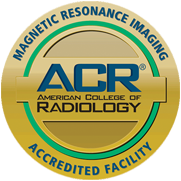Nuclear Stress Test
Nuclear Stress Tests at ZP
A cardiac stress test (also referred to as a cardiac diagnostic test, cardiopulmonary exercise test, or abbreviated CPX test) is a cardio logical test that measures a heart's ability to respond to external stress in a controlled clinical environment. The stress response is induced by exercise or by drug stimulation. This exam is used to diagnose various symptoms, including chest pain, shortness of breath, or palpitations. It helps to identify abnormal heart rhythms, to see if enough blood flows to your heart, as you get more active, see how well your heart valves are working, and to find out if it's likely that you have coronary heart disease and need more testing.
At ZP, we offer Single Photon Emission Computed Tomography (SPECT) imaging, which uses specialized cameras to visualize the internal organs at work, as well as the body's anatomy through three-dimensional images.

A Physician May Recommend a Nuclear Stress Test To:
- Diagnose coronary artery disease
- Diagnose a possible heart-related cause of symptoms such as chest pain, shortness of breath or lightheadedness
- Determine a safe level of exercise
- Check the effectiveness of procedures done to improve coronary artery circulation in patients with coronary artery disease
- Predict risk of dangerous heart-related conditions such as a heart attack.
How it Works
During all types of stress testing, a doctor, nurse, or technician will always be with you to closely check your health status.
Before you start the "stress" part of a stress test, the nurse will put sticky patches called electrodes on the skin of your chest, arms, and legs. To help an electrode stick to the skin, the nurse may have to shave a patch of hair where the electrode will be attached.
The electrodes will be connected to an EKG (electrocardiogram) machine. This machine records your heart's electrical activity. It shows how fast your heart is beating and the heart's rhythm (steady or irregular). An EKG also records the strength and timing of electrical signals as they pass through your heart.
The nurse will put a blood pressure cuff on your arm to check your blood pressure during the stress test. (The cuff will feel tight on your arm when it expands every few minutes.) Also, you might have to breathe into a special tube so the gases you breathe out can be measured.
Next, you'll exercise on a treadmill or stationary bike. If such exercise poses a problem for you, you might turn a crank with your arms instead. During the test, the exercise level will get harder. You can stop whenever you feel the exercise is too much for you.
Why Choose Zwanger Pesiri?
Zwanger-Pesiri Radiology brings world-class expertise to the Long Island community. Our subspecialty-trained radiologists are Board Certified by the American Board of Radiology with fellowship training in a variety of specialties. They are highly-skilled, highly-knowledgeable, and make patient care a priority. To learn more, contact us today.
